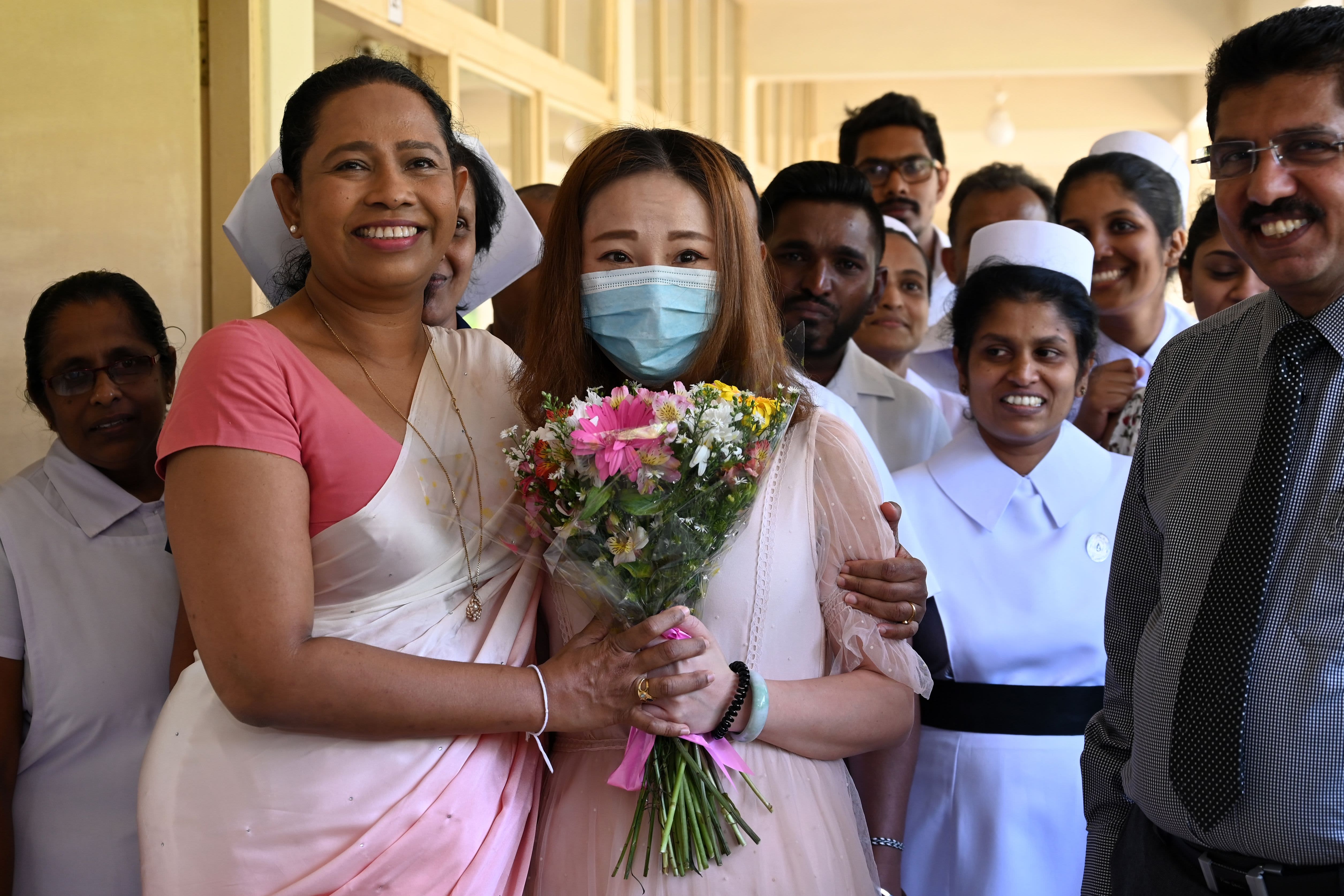Sri Lanka’s president this week replaced the country’s health minister in a cabinet reshuffle as the Covid crisis worsened and daily deaths and infections hit record highs.
Health Minister Pavithra Wanniarachchi was reassigned to the transport ministry. Former media minister and official spokesperson for the cabinet, Keheliya Rambukwella, was named the new health minister.
Under Wanniarachchi’s tenure, the health ministry was criticized over its handling of the pandemic. She also attracted controversy for reportedly consuming and endorsing alternate remedies to prevent Covid-19.
It was not immediately clear what prompted the cabinet reshuffle.
Neither President Gotabaya Rajapaksa’s office nor the Sri Lankan health ministry immediately responded to CNBC’s requests for comments.
Herbal syrup and ‘blessed’ water
Wanniarachchi promoted a herbal syrup containing honey and nutmeg that was created by a shaman who claimed it worked as a life-long inoculation against the virus, the BBC reported. The shaman reportedly said the recipe was given to him in a visionary dream.
Reports said that while doctors dismissed the claims made about the syrup’s effectiveness, thousands defied social restrictions and traveled to a village in central Sri Lanka to obtain the concoction. Several politicians also reportedly took the potion.
The former health minister contracted Covid-19 and was reported to be in intensive care in January.
Last November, Wanniarachchi also poured a pot of “blessed” water into a river after a self-styled god-man told her it would end the pandemic in Sri Lanka, the AFP reported.
Covid surge
Sri Lanka’s daily Covid cases have surged since July and surpassed 3,000 on average in recent days. On Tuesday alone, the country reported more than 7,000 new cases.
Since the pandemic began last year, the situation appeared under control until mid-April when cases started climbing — daily reported infections were on a downward trend between June and early July before the numbers rose again.
Information compiled by Our World In Data showed that on a seven-day moving average basis, the country reported 199.02 new cases per million people on Aug. 17. Sri Lanka’s total population is about 21.8 million people.
Reported deaths have also gone up — on a seven-day moving average basis, there were 7.30 deaths per million people on Aug. 17, compared to around 1.77 deaths on July 17.
The government has so far resisted calls for a lockdown to help slow the surge in cases and deaths that’s straining Sri Lankan hospitals.
Instead, the government appears to be banking on vaccines to tackle the surge.
The Associated Press reported that Sri Lanka used more than 1 million doses of the AstraZeneca vaccine when it first began its inoculation drive in January before the supply from India stopped. Sri Lanka has also used shots received from China, Japan, the United States and the global vaccine sharing program for lower-income countries called Covax.
